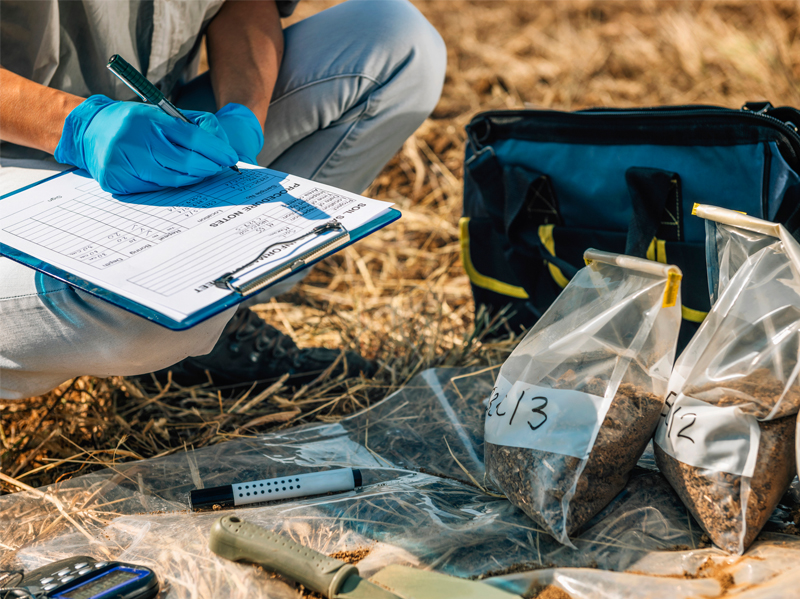
Authors
-

Associate Director, Transformation, BSR
-

Associate Director, Energy, Extractives, Transport, and Industrials, BSR
-

Senior Advisor, BSR
Public scrutiny of how businesses are responding to the COVID-19 pandemic is bringing renewed attention to the importance of corporate transparency on sustainability issues. Effectively meeting these expectations starts with understanding two key dimensions of sustainability reporting: how companies are responding now and defining how companies should respond in the future.
We have observed several trends emerging from the pandemic and compared them with best practices on reporting. We are sharing these insights here to assist company sustainability teams as they strive to keep stakeholders informed—despite, in many cases, the reality of limited time and diminished resources.
What We’re Seeing Now
- Companies adjusting their reports. COVID-19 has shaken all businesses, causing some to delay or scale back their formal sustainability reporting. Companies that recently released a 2019 report or are in the final approval stages are primarily acknowledging COVID-19 in one of three places: the CEO letter, as a call-out box or case study within the report itself, or in the report’s corresponding press release. Companies are also linking to informal and regularly updated webpages that provide specifics on their immediate COVID-19 responses.
- Investors watching closely. Investors remain eager for the latest performance data and have reiterated the importance of engagement on long-term environment, social, and governance (ESG) issues despite the havoc wreaked on businesses’ day-to-day operations. BlackRock notes this proxy season will focus on board composition and quality, environmental risks and opportunities, corporate strategy and capital allocation, compensation that promotes long-termism, and human capital management. JUST Capital is tracking how employers are treating stakeholders amid the current crisis, and Truvalue Labs has introduced a free Coronavirus ESG Monitor that captures impact using the Sustainability Accounting Standards Board's (SASB) material issue categories. The ESG issues that investors were looking at prior to COVID-19 still hold—indeed, the current crisis has amplified their importance to investors’ decision-making.
- An emphasis on social criteria. The COVID-19 crisis is placing heightened importance and increased scrutiny on how companies are addressing the “S” in ESG. News outlets and investors alike are focusing on companies’ treatment of employees, suppliers, and the communities in which they operate, naming and shaming (or faming) good and bad actors along the way. Reputation is an important driver of this focus, but business continuity, economic inclusion, and public safety considerations are also critical. Given mounting investor, civil society, and media attention, companies are increasing their focus on social issues to demonstrate responsiveness to the top priorities of the day.
What We’d Like to See in the Near Future
- Consistency and completeness. Investors still want comparable year-on-year data and will be especially interested this year in gauging companies’ resilience to shocks. Although managing COVID-19’s immediate impacts remains top priority for many public companies, reporting historical ESG data and performance remains essential. While a slight delay of this year’s reporting is understandable, companies should still strive for the same level of coverage as previous years and continue to improve their disclosures moving forward, with the expectation that their performance on key social issues will be even more thoroughly examined than usual.
- Accountability during the new reality. Reports should provide an enduring account of how companies are responding to the COVID-19 crisis. The extent to which companies do this now or in the future depends on where they are in their reporting cycle: reports near completion today (e.g. by companies that operate on a calendar-year basis) will provide less insight than those with more time available (e.g. by companies with a fiscal year that doesn’t match the calendar year and report later in the year). Regardless of reporting calendar, companies will need to explain decisions made during this time and make forward-looking statements about how they intend to help "build back better" in the future. Sustainability reports will become an essential venue for accountability when looking back at company actions during COVID-19.
- Numbers backed by narrative. Stark reductions in business operations and travel as a result of COVID-19 will likely reduce companies’ greenhouse gas emissions and other environmental impacts, in many cases accelerating progress towards sustainability goals. Similarly, COVID-19 will impact many other metrics, such as diversity, employee engagement, and supply chain labor compliance. Going forward, it will be essential for companies to provide a narrative that identifies what change in historical performance relates to COVID-19 factors and what change results from previously existing plans—numbers on their own will be impossible for readers to interpret. It will also be important to provide a forward-looking narrative explaining their potential trajectory once COVID-19 is behind us.
- Meeting stakeholders’ information needs outside the annual reporting cycle. Honest and timely communications are more important now than ever. Reporting is about meeting the information needs of external stakeholders, and in the current crisis, that may entail disclosure outside the boundaries of the formal sustainability/annual report, such as dedicated COVID-19 webpages. While not a substitute for formal reporting, well-designed websites and other responsive communications can be a powerful tool to distill the most material information to stakeholders, enabling them to make informed decisions and provide feedback to companies in the near term.
Sustainability reporting exists so that stakeholders can make informed judgments about how companies impact the world around them and understand how the changing world impacts the sustainability performance of companies. In this sense, sustainability reporting is more important now than it has ever been, and looking forward, it will be critical to understand how COVID-19 may impact sustainability reporting over the long term. Stay tuned for a follow-up blog post on how to “build the future” of post-COVID sustainability reporting.
Topics
Let’s talk about how BSR can help you to transform your business and achieve your sustainability goals.







